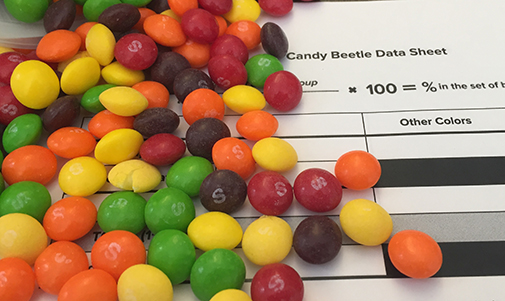17:36
These Black Women Helped Send Us To The Moon
Remembering the African American women mathematicians and engineers whose calculations got us into space.
7:19
Ancient Migrations, Summer Sea Ice, and Archaeological Algorithms
Homo sapiens worldwide may have descended from a single migration event out of Africa more than 50,000 years ago.
Five Back-To-School Books For Science-Loving Kids
A handful of good reads for the shark fans, budding architects, and other curious kids in your life.
17:32
How Much Math Should Everyone Know? (Show Your Work.)
Educators argue over how to shake up math education, like ditching pre-calculus and emphasizing real-world thinking.
17:29
Building Better Violins…With Science
Self-taught scientist and luthier Carleen Hutchins brought new scientific rigor to violin-making.
Sampling and Estimation With Bountiful ‘Beetles’
In this activity, explore the science and the math behind sampling. Use your data to make predictions about the most common color in a population of candy beetles.
17:24
Finding Ramanujan
Within less than a decade, an impoverished Indian clerk upended mathematics with strange and beautiful equations.
Twitter Polling and Sample Bias: A Case Study
As part of our #TakeASample Science Club, Science Friday asked its Twitter audience a few simple survey questions, and they answered by the thousands. But do the data mean anything?
10 Questions for the Nation’s First Chief Data Scientist
DJ Patil reflects on his first year as chief data scientist in the White House’s Office of Science and Technology Policy.
7:18
The Science Club Wants You to #TakeASample
This month’s project from Science Friday’s Science Club asks participants to answer a question about a big or complex thing by looking at a sample of the whole.









